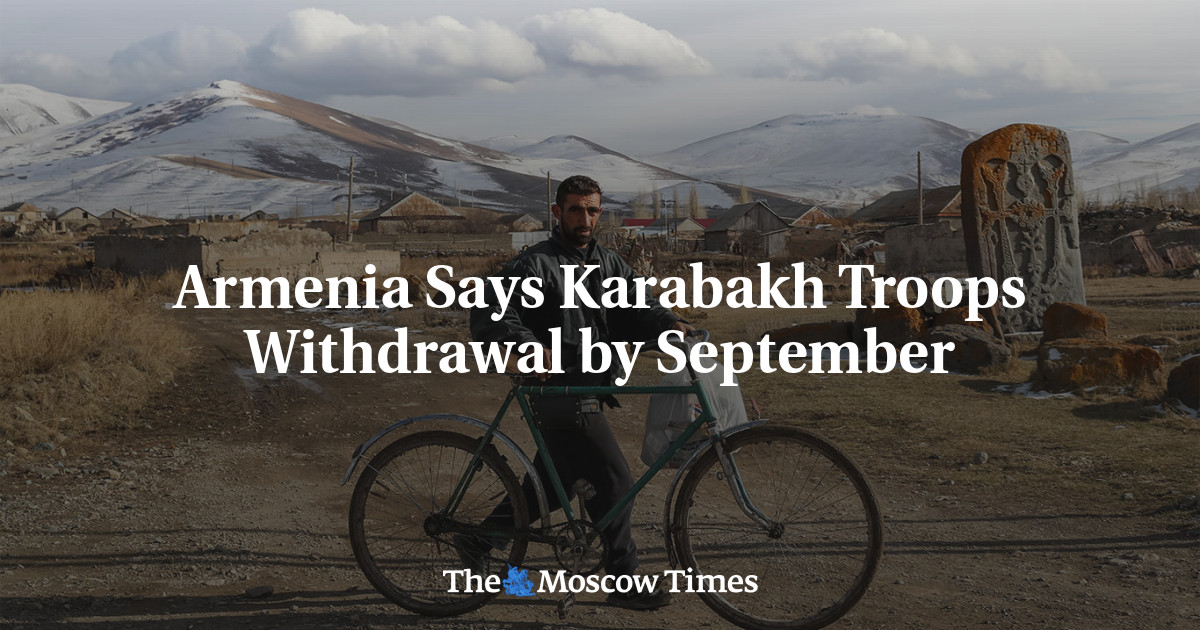
Armenia will withdraw all troops from the contested Nagorno-Karabakh region – over which it has fought two wars with arch-foe Azerbaijan – by September, officials said Tuesday.
Six weeks of fighting between the Caucasus neighbors in autumn 2020 claimed more than 6,500 lives and ended with a Russian-brokered ceasefire.
Under the deal, Armenia ceded swathes of territory it had controlled for decades, and Russia deployed some 2,000 peacekeepers to oversee the fragile truce.
“The units of Armenian armed forces have been returning to Armenia after the ceasefire, the process is nearing completion and will end in September,” the secretary of Armenia’s security council, Armen Grigoryan, told state news agency Armenpress on Tuesday.
But local Armenian separatist forces “will remain there.”
Grigoryan said Russian peacekeepers in Karabakh “guarantee” the security of the ethnic Armenian population there.
Azerbaijani President Ilham Aliyev on Friday complained that the Armenian withdrawal was too slow.
The foreign ministers of Armenia and Azerbaijan met in the Georgian capital Tbilisi this weekend for their first direct talks since the war.
The negotiations were expected to build on an agreement reached by Aliyev and Armenian Prime Minister Nikol Pashinyan in May under EU mediation.
Aliyev and Pashinyan held rare face-to-face talks in Brussels in April and May.
European Council President Charles Michel has said their next meeting is scheduled for July or August.
Following its invasion of Ukraine on Feb. 24, an increasingly isolated Moscow lost its status as the primary mediator in the conflict.
The European Union has since led the Armenia-Azerbaijan normalization process, which involves peace talks, border delimitation and the reopening of transport links.
Ethnic Armenian separatists in Nagorno-Karabakh broke away from Azerbaijan when the Soviet Union collapsed in 1991. The ensuing conflict claimed around 30,000 lives.